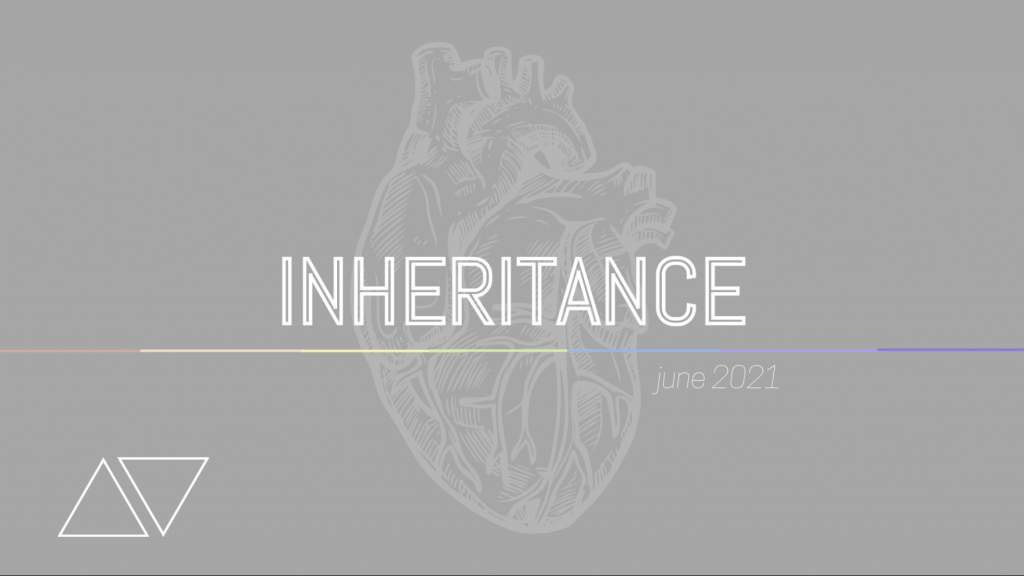The month of June is understood in the secular community as Pride Month. Eden Invitation, a movement for young adult Catholics experiencing same-sex desires and gender discordance, offers something different in their month-long initiative Inheritance.
“We genuinely care about what our members are experiencing, so when the world is overtly celebrating Pride Month, it’s going to affect you in a variety of ways,” said Anna Carter, co-founder of Eden Invitation. “We always try to do something during Pride Month—not so much to celebrate all the things that the culture is saying—but to say, ‘Hey, this is going on, and it’s affecting people.’”
This month, Eden Invitation will provide opportunities to dialogue about faith and sexuality in weekly discussion groups. The topic of this year’s series is “Inheritance”, which focuses on their inheritance as Catholic Christians, human beings and LGBTQ persons, according to their website.
“If you look at the secular space, there is a lot of creativity, there’s a lot of energy and there is a multiplicity of secular apostolates—different organizations that have different tones and emphasize different things,” said Carter. “It can be hard for people who experience this to know what the future is going to hold, which is part of the reason why the secular space is so enticing.”
Eden Invitation will also offer a mini-retreat, and publish reflections on living with same-sex attraction or gender discordance, as well as how to best support friends and family members who identify as LGBTQ.
Eden Invitation, which is a lay- and peer-led ministry in full accord with the Magisterium, focuses on the whole person, Carter said, which includes formation, community, and creative discipleship. An individual who wants to learn more about the organization is invited to a confidential video call with someone from the Eden Invitation office to build a human connection first. Then, participants can join book clubs, retreats, encounters, and local, in-person groups.
“It’s easy to find the experts online, it’s easy to read the blogs and watch the video, but to find a friend is a lot harder,” said Carter. “That’s another thing we are able to offer people—dynamic friendships and community.”
Carter and co-founder Shannon Ochoa both have backgrounds in ministry and evangelization, and started Eden Invitation in 2017 to witness to Christ’s love in the LGBTQ community. Eden Invitation currently serves in 45 states and 15 countries across five continents.
“This particular topic, this particular population, and this particular part of myself was put on my heart,” she said. “I realized the poverty of witnesses around this topic.”
The apostolate has seen a lot of fruits, Carter said, notably a deep recognition of God’s love, renewed discipleship, and a desire to stay in the Church.
According to a 2016 report from the Public Religion Research Institute, 29 percent of people who have left their childhood religion cited a negative experience of religious teachings about LGBTQ people. Young adults are three times more likely than seniors to state this as their reason for leaving the Church, according to the same report.
“Here in the Church, so often our pastoral response has kind of seemed a little ‘one note’ for a number of years—it’s a good note, it’s a beautiful note that we’ve been hitting,” said Carter. “But the truth is, our faith is really a full symphony. Apologetics is one tool in the tool kit, and sometimes we overuse that tool.”
The Church, Carter said, has been caught up in a culture war on this topic.
“This is one of the premier concerns of our day,” she said. “We need a more robust catechesis on the teachings that speak to the modern world. This is pressing, and the way we articulate this to the world matters a lot.”
“We as a Church need to continue to be transformed by the renewal of our hearts, the renewal of our minds, to become more and more like Jesus,” she said.
Carter was asked to give a talk recently on the Church’s teaching on sexuality, and whether the teachings of the Church meant a life of misery for people with same-sex attraction. She shared a reflection on the Paschal Mystery and how the story could provide a lens through which to think about living with same-sex attraction.
“I’ve always found a lot of consolation in the more we can see ourselves and see our lives in the life of Christ, the better off we’re going to be as Christians, as disciples and as people,” she said. “These movements [in the Paschal Mystery] are archetypical movements of the Christian life. How do we move through life as Christians experiencing same-sex desires?”
Her talk and subsequent blog post provided principles for integrating the passion, death, resurrection, and ascension of Christ into the experience of same-sex attraction. She also emphasized the need for support and community, both inside the LGBTQ community and among their families and friends.
“The main thing is to relax and be friends,” she said. “Listen to somebody's story, hear about their faith journey and listen to how same-sex attraction impacted it, inside or outside of the Church.”
True accompaniment, Carter said, takes into account the whole person, not just their sexuality.
“Recognize that people are people and what a person is dealing with on a particular day may have nothing to do with same-sex attraction,” she said. “Our lives are complex, and in listening to one another, we’ll hear that. It’s not just about conversations about sexuality. It’s about doing life together.”

